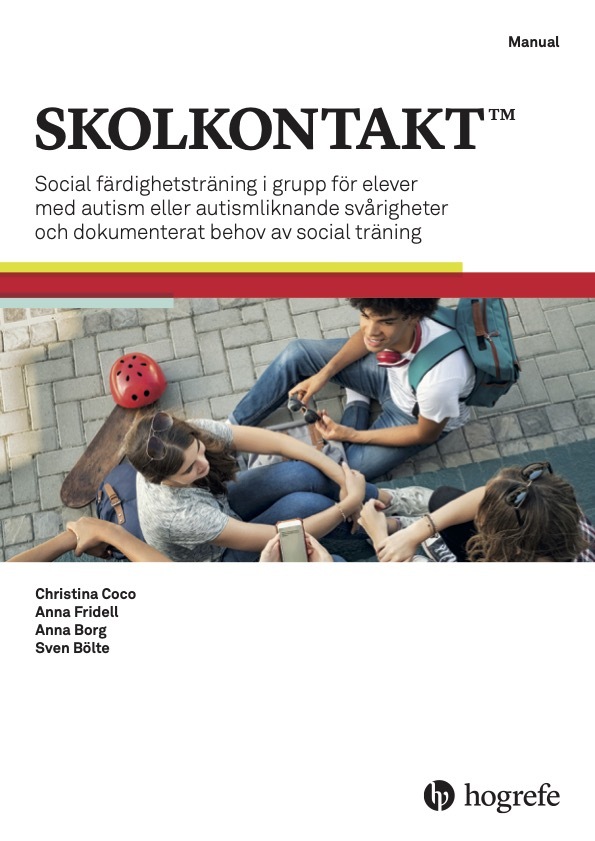KIND and school related work
At KIND we are working to implement working methods and to contribute to the development of evidence-based methods in schools to facilitate schooling for students with special needs, especially students with neurodevelopmental disorders (NDD).
The goal for these working methods is to promote mental health, make use of individual skills and enable an organization were students with special needs is given tools to succeed in their everyday life. For us at KIND, the school environment is a highly important arena, since it's a place where children and adolescents with NDDs spend a significant amount of time together with their peers and where they are faced with a lot of challenges in and outside of the classrooms. Structure, clarity and focus on the individual as well as their caregivers’ needs is essential for the students’ knowledge development.
An important aspect of the work at KIND is to compile existing research in systematic literature reviews. Recently we have reviewed the existing research on adaptations in the learning environment for children and adolescents with autism, while an on-going review is focusing on school absenteeism and NDD. Furthermore, personnel from KIND continuously lecture in school related topics in different contexts, for example at: Lärarinstitutet, Magelungen Schools, Adolfbergsskolan, and Katarina Norra skola. We are also represented in Committee for Educational Sciences and the National Agency of for Special Needs Education and Schools (SPSM) transparency council.
School related work at KIND includes methods such as SKOLKONTAKT™ (eng. SCHOOLKONTAKT) and INCLUSIO.

SKOLKONTAKT - social skills training in group
SKOLKONTAKT is a social skills training in group for students with autism or autism-like difficulties with a documented need to work with social difficulties at school. The development of the intervention was carried out in dialogue with school personnel, as a part of a small development study at a high school, and in collaboration with special aid teacher and former principal Anna Borg (affiliated with KIND). SKOLKONTAKT is developed for adolescents (approx. later part of elementary school and high school). SKOLKONTAKT is based on the same basic principles as KONTAKT (social skills group training for children and adolescents with autism in a clinical setting) but has been adapted for the schools’ unique conditions. SKOLKONTAKT has been adapted to fit into the school environment, and has more school related themes, individual grated goals, increased frequency of sessions (3 per week), and weekly tasks that is carried out during sessions. The SKOLKONTAKT- groups are led by school personnel and intervention is completely implemented and carried out at school. Further, another of intervention’s aim is also to give the schools an extra tool for a student group at risk and to be capacity building for the entire school.
SKOLKONTAKT has been evaluated in a controlled, randomized pilot study with an active control group at a high school in Stockholm. The overarching purpose was to investigate the acceptability, safety, and preliminary effects in comparation with an active control group. In an interview study, it was conveyed that the youth that participated in and school staff who carried out SKOLKONTAKT, but also the school management, expressed that it had been a positive experience overall, and a well-placed and motivated intervention at the school. Questionnaires showed that certain social skills developed and that the young people's self-perceived quality of life improved, more so for participants in the SKOLKONTAKT groups than in active control groups. In addition, more personally formulated, social goals were achieved if the youth attended SKOLKONTAKT.
Training in SKOLKONTAKT
Are you interested in training, certification, and supervision in the SKOLKONTAKT?
Register for one of KIND’s training courses.
Are you interested in purchasing manuals and workbooks for the SKOLKONTAKT method?
Contact the publisher Hogrefe.
INCLUSIO – a tool for assessing inclusion for students with NDD at school
INCLUSIO is an organizational tool (interview or survey) produced to help school personnel to systematically map how well school function and actively works towards inclusion for students with NDD.
With 61 questions about the school and the respondent, as well as background items, INCLUSIO high-lights areas such as: Assessment of support needs, Use of individualized support, Implementation of a structured learning environment, Cooperation with parents, and Staff education/professionalism. The response can afterwards be used as a tool to systematically analyze, plan and follow-up the schools organization towards the goal to create and enhance the conditions for a working and expedient schooling for students with NDD. Another idea with INCLUSIO is that the systematic assessment (via interview or survey) is something that also can improve schooling for other students I general.
INCLUSIO as a standardized interview have been studied qualitatively with in-depth interviews together with neurodivergent student, their guardians, and teachers regarding perceived inclusion at school. In the study it was noticed that the perceived and practiced inclusion differ and a need emerged for enhanced collaboration between teachers, students, and guardians to develop pedagogical inclusion.
Report regarding inclusion at school
KIND have written a report regarding work with inclusion for children and adolescents at Swedish schools. It is based on INCLUSIO and includes responses from 4778 employed at 68 schools. Read the report here (in swedish).
